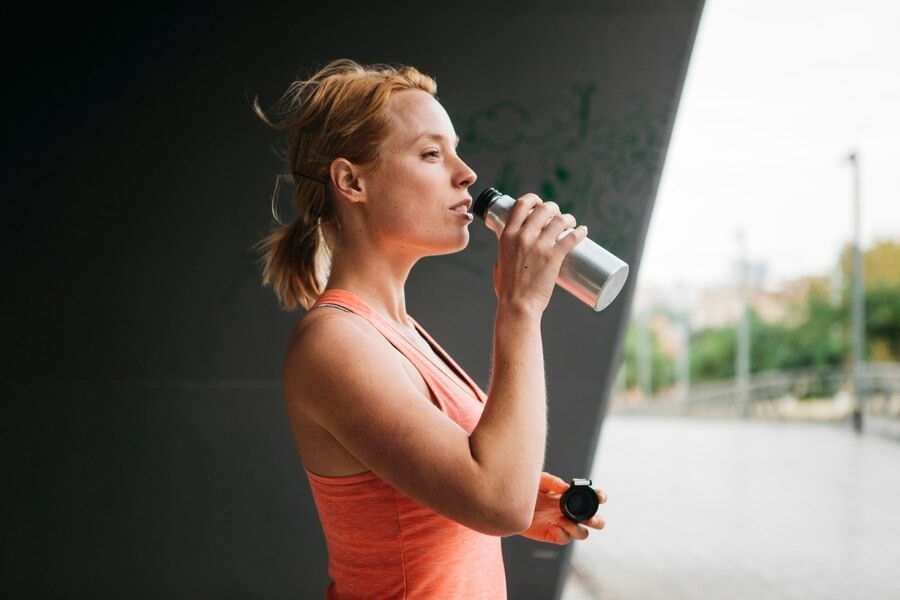A common question among fitness enthusiasts is whether drinking water immediately after a workout is healthy or not. In this article, we take a look at whether you should incorporate this practice into your routine.
Do you always drink plenty of water after exercising? It’s true that staying hydrated is essential as it helps replace the fluids lost through sweat during your workout. However, did you know that drinking water immediately after exercise may not always be the best option? Let’s understand why!
5 reasons to avoid drinking water immediately after training
- Risk of stomach upset: One of the reasons you shouldn’t drink water right after a workout is to avoid stomach upset. Intense workouts can lead to significant fluid loss through sweat. Drinking water too quickly after a workout can lead to digestive issues such as bloating, discomfort, or even nausea.
- It can affect blood pressure: Cardiovascular health undergoes significant changes during and after exercise. Heart rate and blood pressure naturally increase during physical activity. Drinking water immediately after exercise can cause a rapid increase in blood pressure, which can lead to dizziness or vertigo.
- Electrolyte imbalance: Rapid or excessive water consumption can dilute essential electrolytes such as sodium and potassium, especially after prolonged or intense exercise. It can cause muscle cramps, dizziness, or weakness.
- Overhydration: Overhydration or hyponatremia occurs when you consume an excessive amount of water in a short period of time. This can dilute sodium levels in your blood. Drink water in moderation and adjust your intake based on the intensity and duration of your workout.
- Interference with recovery: Drinking water too quickly after exercise can interfere with the body’s ability to regulate temperature and digest nutrients. It can cause disruptions in the recovery process and nutrient absorption.
While drinking water after exercise is essential for hydration, it’s crucial to do so mindfully. Avoid overhydration by drinking in moderation, listening to your body’s signals, and considering pairing your intake with electrolyte-rich beverages or foods if necessary. This balanced approach will help you reap the benefits of proper hydration without the adverse effects of exercise.
